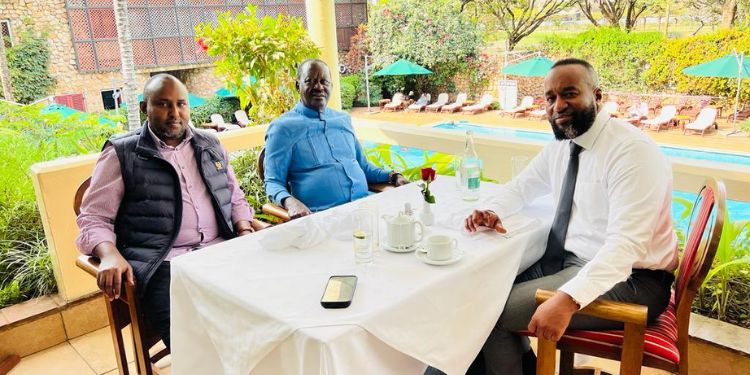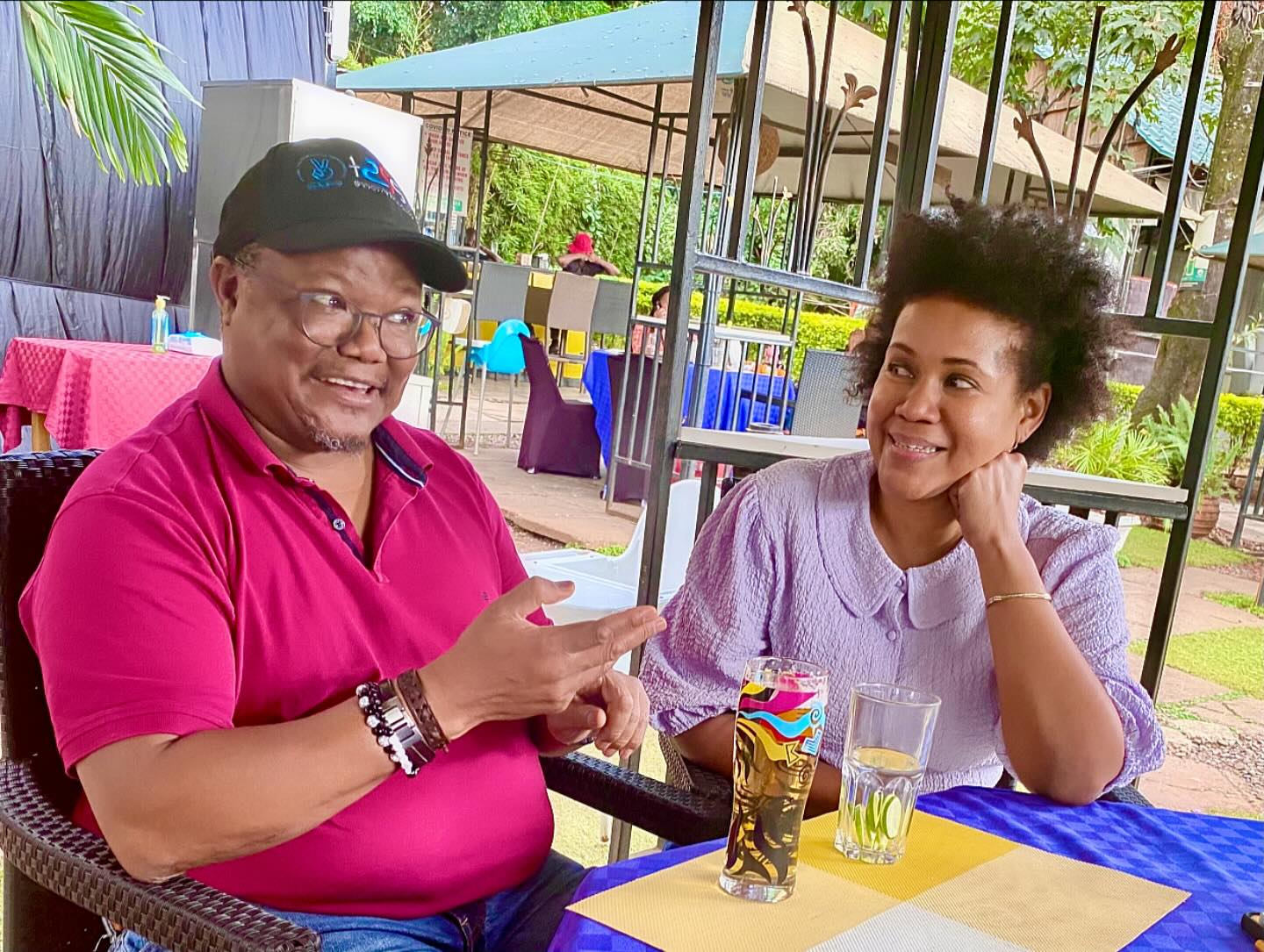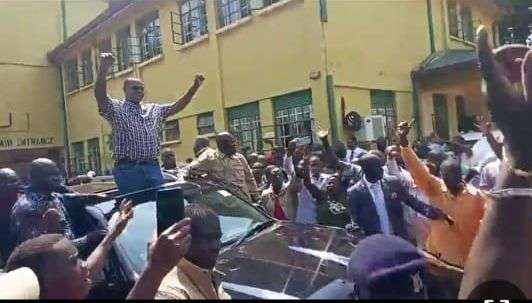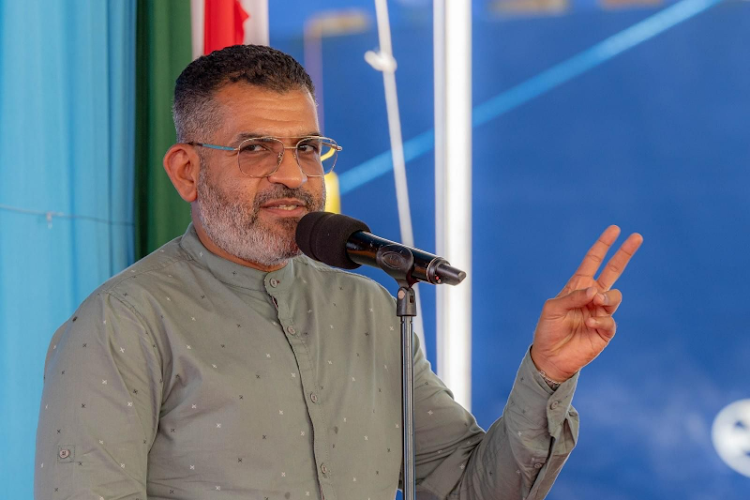This surprising show of support by the ODM party comes as Ruto’s government faces mounting backlash over a series of unpopular policies and unfulfilled promises. Ruto’s flagship projects, such as the ill-fated lease of Jomo Kenyatta International Airport (JKIA) to the Adani Group of India, have sparked fierce opposition from civil society, leading churches, and even the courts. A deal with Adani for constructing high-voltage power transmission lines and substations, along with changes to the National Hospital Insurance Fund (NHIF), has also faced widespread condemnation
The Orange Democratic Movement (ODM) is playing a high-stakes game of political chess, expertly walking the line between official opposition and loyal supporters of President William Ruto’s controversial government. Despite claiming to be the rightful minority side in Parliament, the party seems more than willing to back the President’s initiatives, especially when they align with ODM’s interests under the so-called “broad-based government” arrangement.
In a bold move that raised eyebrows across the political landscape, ODM’s National Assembly Minority Leader, Junet Mohammed, openly dismissed Wiper leader Kalonzo Musyoka’s bid to claim the official opposition role. Instead, Mohammed reaffirmed his position, declaring that he was rightfully occupying the minority seat as per the law. However, he went a step further, declaring that ODM had no qualms about supporting Ruto’s government on certain key initiatives.
“If what is being implemented aligns with our manifesto, what is there to oppose?” Mohammed challenged, signalling ODM’s willingness to back Ruto’s plans, even if they were initially pitched as controversial.
This surprising show of support comes as Ruto’s government faces mounting backlash over a series of unpopular policies and promises that have yet to be fulfilled. Ruto’s pet projects, like the ill-fated lease of Jomo Kenyatta International Airport (JKIA) to the Adani Group of India, have sparked fierce opposition from civil society, leading churches, and even the courts. A deal with Adani for constructing high voltage power transmission lines and substations, as well as changes to the National Hospital Insurance Fund (NHIF), has also drawn widespread condemnation.
The National Council of Churches of Kenya (NCCK) added fuel to the fire this week, accusing Ruto of fostering a “culture of lies” and calling for a halt to the implementation of the Social Health Insurance Fund (SHIF) until the proper structures were in place. The controversy surrounding SHIF is compounded by technical difficulties that have left Kenyans wondering whether the government’s health reforms will ever take off.
But Ruto remains defiant. In his usual combative style, he lashed out at those opposing his agenda, labelling them “unpatriotic” and accusing them of offering no alternatives to the policies they criticize. In a bizarre moment, he even referenced a supposed “evil spirit” that had consumed his critics—pointing to the Catholic Church’s rejection of his recent donation to a Nairobi church just days after a stinging condemnation of his government.
As Ruto fights to keep his flagship projects alive, he’s found unexpected allies in former ODM stalwarts, people who, not long ago, were his fiercest critics. Among them is former ODM deputy leader Hassan Joho, who now serves as a powerful Cabinet member under Ruto. During Ruto’s tour of Taita Taveta County, Joho wasted no time in throwing his weight behind the President, vowing to take the fight to those who dare oppose Ruto’s government, including impeached Deputy President Rigathi Gachagua and his newfound allies in the opposition, Kalonzo Musyoka and DAP-Kenya leader Eugene Wamalwa.
Gachagua, who has repeatedly criticized Ruto’s policies, including the controversial Adani deals and the forced eviction of people from riparian land, claims he was sidelined from government due to his opposition to certain key decisions. Gachagua has also pointed to the government’s failure to address police brutality and human rights violations during the Gen Z protests, further fueling the political divide.
Meanwhile, ODM leader Raila Odinga, who has staunchly denied any alliance with Ruto’s Kenya Kwanza government, took a victory lap following Gachagua’s fall from grace. In a recent public appearance, Raila celebrated Gachagua’s ouster, joking that the Deputy President’s attempts to “trap” him from entering the government had spectacularly backfired.
‘He said he had set up traps to stop me from going to State House, to stop me from entering government through the backdoor. Where is he now? The person who had set up traps for me got trapped instead,’ Raila quipped, adding a layer of drama to an already tense political landscape.
As ODM continues to straddle the line between opposition and collaboration, the party’s dual role raises critical questions: Is ODM simply playing the political game, or has it fully embraced the Ruto government’s agenda? And, most importantly, what does this mean for the future of Kenya’s opposition and the hopes of millions who voted for change? With ODM’s shifting allegiances and Ruto’s increasingly embattled presidency, the stage is set for a dramatic showdown.





